Every debate over how much legal immunity law enforcement officers should enjoy when doing their jobs will arrive at the same conclusion, more or less.
If officers fear being prosecuted for exercising their duties vigorously, they’ll exercise them timidly. And when law enforcement behaves timidly, sometimes innocent people die.
On the other hand, absent any fear of prosecution, some officers will abuse their power. And when law enforcement abuses its power, sometimes innocent people die.
Law enforcement needs a degree of immunity in order to function well—but not too much! And so, unsatisfyingly but inevitably, every debate about immunity lands on some muddled variation of “it’s a balance.”
Every debate about immunity except one, that is.
As of Monday morning, the most powerful law enforcement officer in the world no longer faces any criminal jeopardy when acting “within his exclusive sphere of constitutional authority.” Thanks to the U.S. Supreme Court, when exercising core executive powers like issuing pardons or commanding the military, he’s absolutely immune and is free to be as brazenly corrupt as he likes.
Even beyond those core duties, the court declared that a president should enjoy presumptive immunity for all official acts “within the outer perimeter of his official responsibility.” To overcome that presumption, a prosecutor will need to show that charging him criminally for those acts would pose “no dangers of intrusion”—none, zero—“on the authority and functions of the Executive Branch.”
Absolute immunity for core powers and an exceedingly high bar to prosecution for all other debatably “official” acts, which are to be defined broadly in the president’s favor. That’s the court’s idea of “balance” in presenting a legal framework for executive immunity. “The majority has not put a thumb [on] the scale for former President Trump,” MSNBC legal analyst Lisa Rubin tweeted, “they’ve put their whole hand on it.”
Prosecutors remain free to charge the president for crimes he commits in the course of his “unofficial” conduct, the majority was careful to note, but even that comes with caveats. When seeking to determine whether an act by the president was “unofficial,” courts can’t consider whether his motive was corrupt or whether his behavior violated a law. The official-ness of his conduct is to be adjudged independently of its trappings of criminality.
Certain bits of writing during Donald Trump’s presidency achieved a degree of infamy among his critics because of the naivete they displayed about what the man is capable of. New York Times columnist Ross Douthat predicted before the 2020 election that there would be no “Trump coup.” Mick Mulvaney, Trump’s former acting chief of staff, expected he would concede gracefully after his defeat. The Washington Post quoted one Republican official a few weeks after the election wondering what the harm would be in humoring Trump’s “rigged election” fantasies for a while.
The majority opinion by Chief Justice John Roberts in the Trump immunity case is now part of that tradition, with one momentous difference: It has the force of law. By ruling the way it did, the court performed the constitutional equivalent of handing a loaded gun to an angry chimpanzee.
To say that it placed the president above the law isn’t quite right. It’s more accurate to say that, as of Monday, with respect to his most menacing and potentially tyrannical powers, the president is the law.
Within two years, probably less, this will be widely viewed as the most infamous decision ever rendered by the Roberts Court.
Reading through the opinion, it occurred to me: Is there any other sphere of American law in which a human being enjoys absolute immunity from criminal prosecution?
Law is a mechanism of accountability. Absolute immunity is antithetical to accountability. Even soldiers on the battlefield aren’t exempt from codes of lawful conduct.
“The president is unique because he wields unique powers,” you might say. “No other person in the federal government is invested entirely and exclusively with the authority of a single branch so he needs extraordinary immunity to assure the proper functioning of that branch. It’s all about Article II.”
Oh? Which part of Article II says that?
Monday on Advisory Opinions, our friend David French noted that the supposed textualists in the court’s conservative majority seemed oddly unbothered by the dearth of textual support for absolute presidential immunity. Insofar as there’s any constitutional guidance on this question, in fact, it points the other way: Article I, Section 3 makes clear that impeached officers “shall nevertheless be liable and subject to indictment, trial, judgment and punishment, according to law.”
If the Framers wanted presidents exempt from that rule, it’s strange that they forgot to say so.
Article II doesn’t require absolute presidential immunity, the majority’s dubious interpretation of Article II does. The court could have adopted the sensible standard Sarah Isgur proposed on the same podcast with David by dispensing with absolute immunity and instead simply strengthening the presumption of immunity for core executive functions. If the president were to issue a questionable pardon, for instance, he would be presumed immune unless a prosecutor seeking to charge him could show compelling evidence of criminality. It would be a high bar—but not quite insuperable.
The court went out of its way to make it insuperable. Why? Why in this era of all eras?
After all, each new administration in modern times has reliably stooped to dubious exertions of executive authority when it can’t get its way legislatively. When Congress wouldn’t create legal status for so-called DREAMers, Barack Obama purported to do so unilaterally. When Trump couldn’t get Congress to appropriate money to build the border wall, he snatched it from the Pentagon. When Joe Biden couldn’t move Congress to cut student debtors a break on their college loans, he connived to cut them that break himself.
The court’s conservative majority had been admirably conscientious about reining in executive power grabs, recognizing that letting the president gradually absorb the policymaking duties of a dysfunctional legislature is a recipe for civic disaster. Until Monday, that is, when they turned around and handed him the most remarkable bespoke “get out of jail free” card in the history of American law.
And incredibly, they did so at a moment when we’ve never been closer to the sort of civic disaster they’ve otherwise been trying to prevent.
One way to think about Trump’s immunity case, as Sarah and Mike Warren noted Monday in The Collision, is as a contest between two evils. Lawfare or authoritarianism: Which is worse?
If we give the president too little immunity, ambitious prosecutors looking to make a name for themselves will race to indict him after he leaves office for, say, failing to secure the border. Whereas if we give the president too much immunity, he might … order the military to shoot American protesters. Or start selling pardons off the back of a truck for any well-heeled criminal scumbag with the bread to afford one.
Which villain’s sinister plots are we most eager to preempt? Alvin Bragg’s or, uh, Mussolini’s?
I suppose opinions will differ. But I have strong feelings about which of those two evils is evil-er, particularly right now.
The bizarre thing about Roberts’ opinion is how hard it strains to ignore the fact that the guy who’s most likely to be president in seven months also happens to be a guy who’ll exploit this ruling ruthlessly, in autocratic ways. The immunity standard the court has crafted is ideally suited to the sort of president we used to elect in America, someone operating in good faith who might occasionally brush up against the law in carrying out his duties.
We don’t want a well-meaning future executive denied the legal benefit of the doubt, the chief justice argued. “Unlike the political branches and the public at large, we cannot afford to fixate exclusively, or even primarily, on present exigencies,” he writes at one point, which is his way of admitting that they might have been less generous in crafting a framework for immunity if all presidents to come were as corrupt as Donald Trump.
The problem is that the next president to come will be as corrupt as Donald Trump because Donald Trump will be the next president. And instead of taking heart from this ruling that he can carry out his duties vigorously and conscientiously without fear of being assailed by dubious prosecutions, he’ll take heart from it that he can behave as reprehensibly as he likes without fear of being assailed by meritorious prosecutions.
The court wrote a rule for a good-faith actor at the precise moment that the most notoriously bad-faith actor to ever hold the presidency is poised to abuse that rule to subvert the constitutional order. Under the current political circumstances, “present exigencies” should have weighed a lot more heavily in their reasoning.
“Trump was going to abuse his powers regardless of how the court ruled,” you might reply if you’re desperate to defend the majority. Yes and no. Certainly, he was going to foist a constitutional crisis or three on the country either way, but he does listen to his lawyers sometimes. He listened to Don McGahn about not firing Robert Mueller. He listened to Pat Cipollone about not pardoning his children and certain MAGA cronies in Congress. If the court had circumscribed presidential immunity narrowly on Monday, the coterie of fascists advising him next year would have taken note and warned him of potential criminal jeopardy if he proceeded with certain schemes.
Instead, Trump’s camp is “giddy” over the ruling. The man himself sounded as ecstatic Monday as any gangster would who’d been given permission to crime without consequence. His next team of advisers will encourage him to push his powers to the limit, beyond what they otherwise might.
How, precisely, he’ll exploit the immunity he’s been granted remains to be seen but imaginative possibilities are rife on social media. (His cronies don’t want for creativity.) At a minimum, insofar as there was any hesitation before about abusing the Insurrection Act, it’s assuredly gone now. But even if Trump’s absolute immunity extended no further than the pardon power, that alone would be a license for mayhem. He could sell pardons to miscreants as a sort of presidential “toll” for the right to commit crimes, or he could conspire with cronies to commit federal offenses on his behalf by assuring them that they’ll be pardoned. He would be beyond the reach of criminal jeopardy in every instance since pardons are, after all, part of his “core duties.”
Having received a “get out of jail free” card from the court, he’s now entitled to print the same cards for his toadies without fear of his corrupt motives mattering—and, Trump being Trump, no one would put it past him to do so. The outcome of the decision is so perverse that, arguably, he’s on firmer legal ground going forward if he commits abuses of power in broad daylight and frames them as “official acts” than if he commits them surreptitiously and tries to cover them up.
Imagine how much respect for the rule of law the next generation of Americans will derive from that spectacle, thanks partly to the Supreme Court.
At one point in his opinion, John Roberts had the gall to mock the court’s liberal dissenters for striking “a tone of chilling doom” in describing the parade of horribles that might very plausibly result from the incentives this ruling has created, as if the country didn’t live through an actual coup attempt and insurrection at the Capitol a few years ago.
This decision will be his legacy as a judge. Trump will see to it. And Sonia Sotomayor, the chief dissenter from the ruling and the author of that parade of horribles, will end up with one of the easiest “vindicated by history” opinions in the long life of the court.
On Monday David made a point that’s near and dear to my heart—normally.

There is no “Trump problem.” There’s no “Supreme Court problem” either. The problem is with degenerate American voters who are preparing to knowingly reinstall a gangster as president. That’s not John Roberts’ fault.
The country’s institutions can’t save the people they serve from their own depravity.
But David’s point (which is really Roberts’ point, as he’s paraphrasing the majority opinion) landed awkwardly for me yesterday after the ruling. If it’s the people’s responsibility to deal with Trump, why do we have courts? Or law?
To say that America won’t be cured of illiberalism by a Supreme Court decision is not to say that a Supreme Court decision can’t make the triumph of illiberalism less likely. Donald Trump would have behaved better in a second term if he had reason to peek over his shoulder now and then and worry that Jack Smith is watching him. He won’t be peeking now
It also would have behooved Roberts and the court’s other conservatives to consider that the “present exigencies” they’ve ignored will inevitably reshape the future of the presidency about which they claim to care so much. If Trump is free to get away with murder, figuratively or literally, his successors will expect to get away with it too. Their political bases will demand that they try, in fact. Refusing to press one’s luck on Article II powers the way Trump did will give a president a reputation for being weak, not enough of a “fighter.”
At one point in his opinion, quoting a prior decision of the court, Roberts defended presidential immunity on grounds that anything less would leave the executive “unduly cautious in the discharge of his official duties.” Unduly cautious presidents are not the problem of our age; they’re the precise opposite of the political crisis America now faces, in fact. It’s hard to imagine a more tone-deaf legal or political concern than “the president needs a freer hand” in 2024 except, perhaps, for “Joe Biden is too young.”
Where the leader’s authority conflicts with criminal law, the latter must yield—in most cases. That’s the essence of authoritarianism and, coincidentally, it’s the upshot of this travesty of a decision. The point of the constitutional scheme is to prevent the tyranny of a monarchy by carefully circumscribing the federal government’s powers. Somehow, from that, the conservative majority derived an immunity standard that grants the most monarchical figure in government the right to abuse his core powers with no legal recourse.
“You’ll regret this,” Mitch McConnell once famously warned the other party after an especially terrible decision of its own, “and you may regret this a lot sooner than you think.” We’ll regret this sooner than we think.
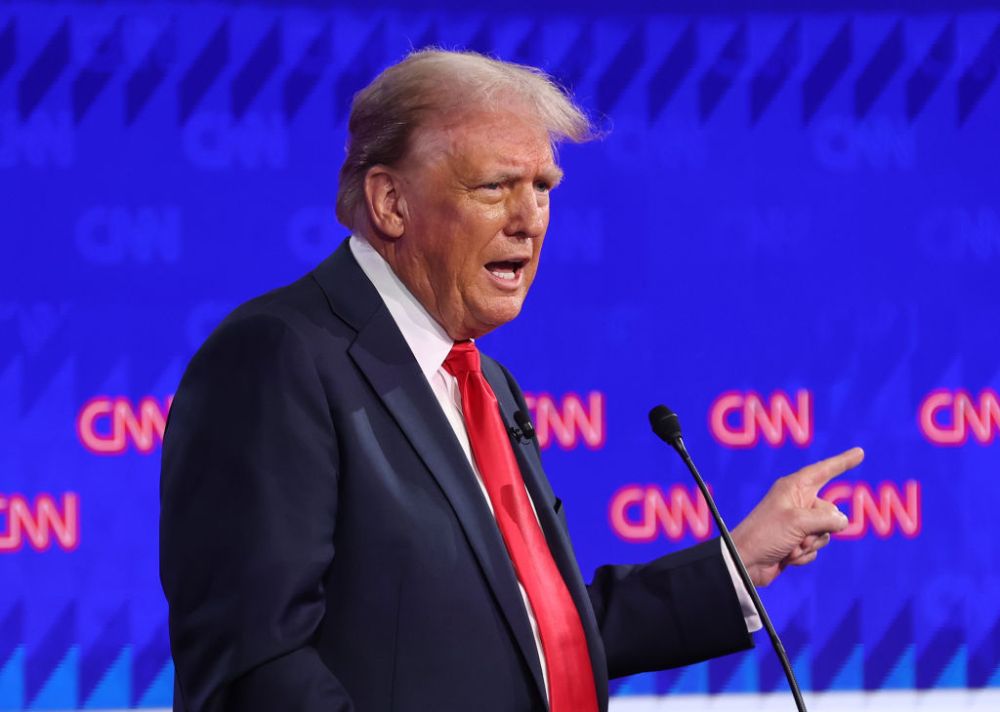

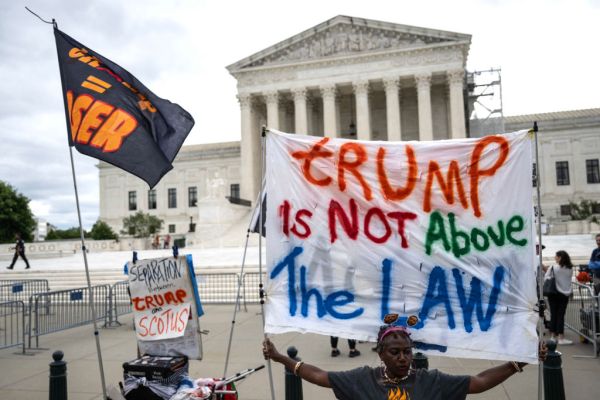
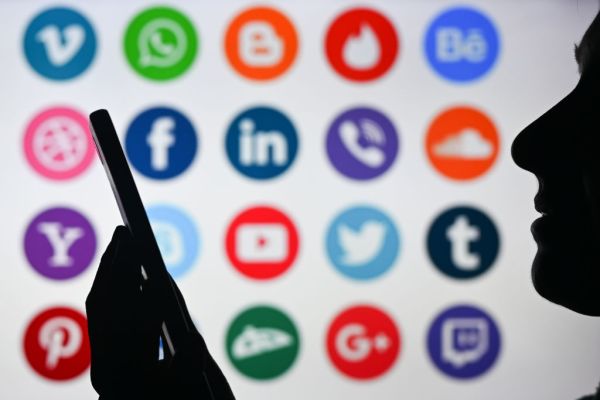
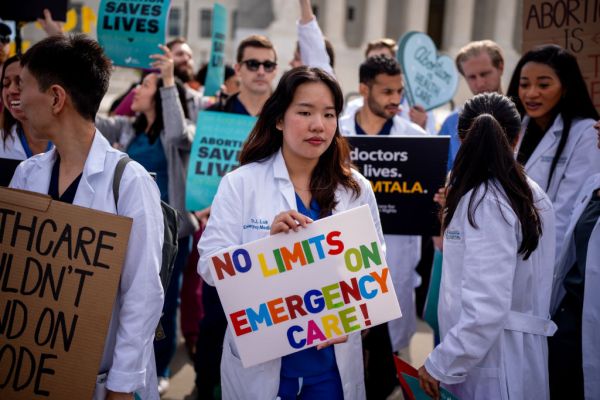

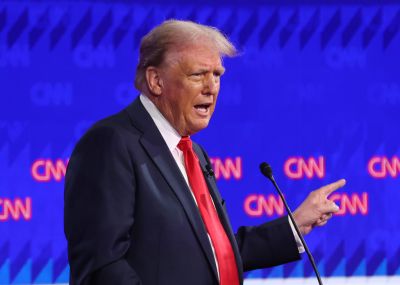
Please note that we at The Dispatch hold ourselves, our work, and our commenters to a higher standard than other places on the internet. We welcome comments that foster genuine debate or discussion—including comments critical of us or our work—but responses that include ad hominem attacks on fellow Dispatch members or are intended to stoke fear and anger may be moderated.
With your membership, you only have the ability to comment on The Morning Dispatch articles. Consider upgrading to join the conversation everywhere.